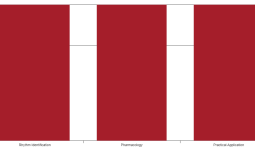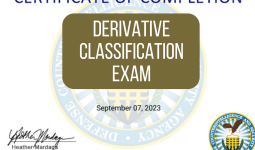AHIP Exam Answers
| Question | Answer |
|---|---|
| Mrs. Park is an elderly retiree. Mrs. Park has a low fixed income. What could you tell Mrs. Park that might be of assistance? | She should contact her state Medicaid agency to see if she qualifies forprograms that can help with Medicare costs for which she is responsible. |
| Madeline Martinez was widowed several years ago. Her husband worked for many years and contributed into the Medicare system. He also left a substantial estate which provides Madeline with an annual income of approximately $130,000. Madeline, who has only worked part-time for the last three years, will soon turn age 65 and hopes to enroll in Original Medicare. She comes to you for advice. What should you tell her? | You should tell Madeline that she will be able to enroll in Medicare Part A without paying monthly premiums due to her husband’s long work record and participation in the Medicare system. You should also tell Madeline that she will pay Part B premiums at more than the standard lowest rate but less than the highest rate due her substantial income. |
| Mr. Bauer is 49 years old, but eighteen months ago he was declared disabled by the Social Security Administration and has been receiving disability payments. He is wondering whether he can obtain coverage under Medicare. What should you tell him | After receiving such disability payments for 24 months, he will be automatically enrolled in Medicare, regardless of age. |
| Mr. Schmidt would like to plan for retirement and has asked you what is covered under Original Fee-for-Service (FFS) Medicare? What could you tell him? | Part A, which covers hospital, skilled nursing facility, hospice and home health services and Part B, which covers professional services such as those provided by a doctor are covered under Original Medicare. |
| Mrs. Peňa is 66 years old, has coverage under an employer plan, and will retire next year. She heard she must enroll in Part B at the beginning of the year to ensure no gap in coverage. What can you tell her? | She may enroll at any time while she is covered under her employer plan, but she will have a special eight month enrollment period that differs from the standard general enrollment period, during which she may enroll in Medicare Part B. |
| Agent John Miller is meeting with Jerry Smith, a new prospect. Jerry is currently enrolled in Medicare Parts A and B. Jerry has also purchased a Medicare Supplement (Medigap) plan which he has had for several years. However, the plan does not provide drug benefits. How would you advise Agent John Miller to proceed? | Tell prospect Jerry Smith that he should consider adding a standalone Part D prescription drug coverage policy to his present coverage. |
| Mr. Diaz continued working with his company and was insured under his employer’s group plan until he reached age 68. He has heard that there is a premium penalty for those who did not sign up for Part B when first eligible and wants to know how much he will have to pay. What should you tell him? | The penalty will be a permanent 10% increase in his Part B premium for every 12-month period that passed during which he could have enrolled and did not. |
| Ms. Moore plans to retire when she turns 65 in a few months. She is in excellent health and will have considerable income when she retires. She is concerned that her income will make it impossible for her to qualify for Medicare. What could you tell her to address her concern? | Medicare is a program for people age 65 or older and those under age 65 with certain disabilities, end-stage renal disease, and Lou Gehrig’s disease so she will be eligible for Medicare. |
| Mildred Savage enrolled in Allcare Medicare Advantage plan several years ago. Mildred recently learned that she is suffering from inoperable cancer and has just a few months to live. She would like to spend these final months in hospice care. Mildred’s family asks you whether hospice benefits will be paid for under the Allcare Medicare Advantage plan. What should you say? | Mildred may remain enrolled in Allcare and make a hospice election. Hospice benefits will be paid for by Original Medicare under Part A and Allcare will continue to pay for any non-hospice services. |
| Mr. Gomez notes that a Private Fee-for-Service (PFFS) plan available in his area has an attractive premium. He wants to know if he must use doctors in a network as his current HMO plan requires him to do. What should you tell him? | He may receive health care services from any doctor allowed to bill Medicare, as long as he shows the doctor the plan’s identification card and the doctor agrees to accept the PFFS plan’s payment terms and conditions, which could include balance billing. |
| Mr. Kelly wants to know whether he is eligible to sign up for a Private fee-for-service (PFFS) plan. What questions would you need to ask to determine his eligibility? | You would need to ask Mr. Kelly if he is enrolled in Part A and Part B and if he lives in the PFFS plan’s service area. |
| Mrs. Wang wants to know generally how the benefits under Original Medicare might compare to the benefits package of a Medicare Advantage Plan before she starts looking at specific plans. What could you tell her? | Medicare Advantage Plans may offer extra benefits that Original Medicare does not offer such as vision, hearing, and dental services. It must include a maximum out-of-pocket limit on Part A and Part B services. |
| Mr. Castillo, a naturalized citizen, previously enrolled in Medicare Part B but has recently stopped paying his Part B premium. Mr. Castillo is still covered by Part A. He would like to enroll in a Medicare Advantage (MA) plan and is still covered by Part A. What should you tell him? | He is not eligible to enroll in a Medicare Advantage plan until he re-enrolls in Medicare Part B. |
| Mr. Barker enjoys a comfortable retirement income. He recently had surgery and expected that he would have certain services and items covered by the plan with minimal out-of-pocket costs because his MA-PD coverage has been very good. However, when he received the bill, he was surprised to see large charges in excess of his maximum out-of-pocket limit that included some services and items he thought would be fully covered. He called you to ask what he could do? What could you tell him? | You can offer to review the plans appeal process to help him ask the plan to review the coverage decision. |
| Mrs. Chi is age 75 and enjoys a comfortable but not extremely high-income level. She wishes to enroll in a MA MSA plan that she heard about from her neighbor. She also wants to have prescription drug coverage since her doctor recently prescribed several expensive medications. Currently, she is enrolled in Original Medicare and a standalone Part D plan. How would you advise Mrs. Chi? | Mrs. Chi may enroll in a MA MSA plan and remain in her current standalone Part D prescription drug plan. |
| Mrs. Ramos is considering a Medicare Advantage PPO and has questions about which providers she can go to for her health care. What should you tell her? | Mrs. Ramos can obtain care from any provider who participates in Original Medicare, but generally will have a higher cost-sharing amount if she sees a provider who/that is not a part of the PPO network. |
| Mr. Wells is trying to understand the difference between Original Medicare and Medicare Advantage. What would be a correct description? | Medicare Advantage is a way of covering all the Original Medicare benefits through private health insurance companies. |
| Juan Hernandez is turning 65 next month, Juan legally entered the United States over twenty years ago but is not a citizen. Since his entry into the country, Juan has worked at Smallcap Incorporated and contributed to the Medicare system. Juan suffers from diabetes. He will soon retire and asks you if he can enroll in a Medicare Advantage plan that you represent. How would you respond? | Juan is eligible to enroll in a Medicare Advantage as long as he is entitled to Part A and enrolled in Part B. Juan should go to the Social Security website to enroll in Medicare Part A and B if he has not done so already. Once he is enrolled, he can choose a Medicare Advantage plan. |
| Mr. Hutchinson has drug coverage through his former employer’s retiree plan. He is concerned about the Part D premium penalty if he does not enroll in a Medicare prescription drug plan, but does not want to purchase extra coverage that he will not need. What should you tell him? | He will need to enroll in a Medicare prescription drug plan upon becoming eligible for the program in order to avoid a premium penalty. To reduce his expenses, he should look for a plan with a zero premium. |
| Mr. Schultz was still working when he first qualified for Medicare. At that time, he had employer group coverage that was creditable. During his initial Part D eligibility period, he decided not to enroll because he was satisfied with his drug coverage. It is now a year later and Mr. Schultz has lost his employer group coverage within the last two weeks. How would you advise him? | Mr. Schultz should enroll in a Part D plan before he has a 63-day break in coverage in order to avoid a premium penalty. |
| Mrs. Fields wants to know whether applying for the Part D low income subsidy will be worth the time to fill out the paperwork. What could you tell her? | The Part D low income subsidy could substantially lower her overall costs. She can apply by contacting her state Medicaid office, or calling the Social Security Administration. |
| Mrs. Quinn has just turned 65, is in excellent health and has a relatively high income. She uses no medications and sees no reason to spend money on a Medicare prescription drug plan if she does not need the coverage. She currently does not have creditable coverage. What could you tell her about the implications of such a decision? | If she does not sign up for a Medicare prescription drug plan as soon as she is eligible to do so, if she does sign up at a later date, her premium will be permanently increased by 1% of the national average premium for every month that she was not covered. |
| Mrs. Imelda Diaz is a Medicare beneficiary enrolled in a MA-PD plan you represent. Her neighbor recently suffered from a painful case of shingles. Mrs. Diaz hopes to avoid such an illness through vaccination. She asks you whether the cost of shingles vaccination will be covered under the plan you represent. What should you say? | Yes, there is no cost sharing for the shingles vaccine even in the deductible phase of her prescription drug plan because it is an adult vaccine recommended by the Advisory Committee on Immunization Practices (AICP). |
| Mrs. Walters is entitled to Part A and has medical coverage without drug coverage through an employer retiree plan. She is not enrolled in Part B. Since the employer plan does not cover prescription drugs, she wants to enroll in a Medicare prescription drug plan. Will she be able to? | Yes. Mrs. Walters must be entitled to Part A or enrolled in Part B to be eligible for coverage under the Medicare prescription drug program. |
| Mr. Shapiro gets by on a very small amount of fixed income. He has heard there may be extra help paying for Part D prescription drugs for Medicare beneficiaries with limited income. He wants to know whether he might qualify. What should you tell him? | The extra help is available to beneficiaries whose income and assets do not exceed annual limits specified by the government. |
| Which of the following statements about Medicare Part D are correct? | I, II, and III only -I. Part D plans must enroll any eligible beneficiary who applies regardless of health status except in limited circumstances. II. Private fee-for-service (PFFS) plans are not required to use a pharmacy network but may choose to have one. III. Beneficiaries enrolled in a MA-Medical Savings Account (MSA) plan may only obtain Part D benefits through a standalone PDP. |
| Mrs. Roberts has Original Medicare and would like to enroll in a Private Fee-for-Service (PFFS) plan. All types of PFFS plans are available in her area. Which options could Mrs. Roberts consider before selecting a PFFS plan? | A Medicare Advantage Prescription Drug (MA-PD) PFFS plan that combines medical benefits and Part D prescription drug coverage, a PFFS plan offering only medical benefits, or a PFFS plan in combination with a stand-alone prescription drug plan. |
| Mrs. Lu is turning 65 in November and called to ask for your help deciding on a Medicare Advantage plan. She agreed to sign a scope of appointment form and meet with you on October 15. During the appointment, what are you permitted to do? | You may provide her with the required enrollment materials and take her completed enrollment application. |
| Agent Daniel Webber has properly set up a sales appointment to meet with client Edward Young at Agent Webber’s office. At the agreed upon appointment time, Mr. Young arrives with his elderly neighbor – Clara Burton, who wants to learn about her Medicare Advantage options. What should Agent Daniel Webber do? | After executing a scope of appointment (SOA) with Clara Burton, meet with Edward Young and Clara Burton to discuss their Medicare Advantage options. |
| You have been providing a pre-Thanksgiving meal during sales presentations in November for many years and your clients look forward to attending this annual event. When marketing Medicare Advantage and Part D plans, what are you permitted to do with respect to meals? | You may provide light snacks, but a Thanksgiving style meal would be prohibited, regardless of who provides or pays for the meal. |
| ABC is a Medicare Advantage (MA) plan sponsor. It would like to use its enrollees’ information to market non-health related products such as life insurance and annuities. Which statement best describes ABC’s obligation to its enrollees regarding marketing such products? | It must obtain a HIPAA compliant authorization from an enrollee that indicates the plan or plan sponsor may use their information for marketing purposes. |
| Wendy Park becomes eligible for Medicare for the first time in July. With the help of Agent James Chan, she enrolls in FeelBetter Medicare Advantage plan with an effective date of July 1st. Which statement best describes how Agent Chan may be compensated under CMS rules? | FeelBetter will pay Agent Chan initial year compensation for the months July through December. Renewal amounts will be paid starting in January if Ms. Park remains enrolled the following year. |
| You have sought permission from a hospital to place brochures for your product in their gift shop and cafeteria. The hospital administration expresses some hesitation about allowing marketing in a health care facility. What should you tell them? | Marketing in health care facilities is an acceptable practice, as long as it takes place in common areas where patients are not receiving or waiting to receive health care and as long as the hospital displays materials for all plans that provide them to the hospital. |
| Hector Hernandez is an independent agent. Hector sells plans on behalf of three Medicare Advantage organizations that offer a total of 10 plans but does not represent all Medicare Advantage organizations offering plans that are available in his area. Which of the following statements best describes any steps Hector is required to take? | During the first minute of a sales call, Hector must send an email to the prospect stating that “I represent 3 plans but not every plan available in your area. Please contact Medicare.gov to get information on all your options. |
| Your friend’s mother just moved to an assisted living facility and he asked if you could present a program for the residents about the MA-PD plans you market. What could you tell him? | You appreciate the opportunity and would be happy to schedule an appointment with anyone at their request. |
| Agent Martinez wishes to solicit Medicare Advantage prospects through e-mail and asks you for advice as to whether this is possible. What should you tell her? | Marketing representatives may initiate electronic contact through e-mail but an opt-out process must be provided. |
| You are doing a sales presentation for Mrs. Pearson. You know that Medicare marketing guidelines prohibit certain types of statements. Apply those guidelines to the following statements and identify which would be prohibited. | “If you’re not in very good health, you will probably do better with a different product.” |
| Mrs. Reeves is newly eligible to enroll in a Medicare Advantage plan and her MA Initial Coverage Election Period (ICEP) has just begun. Which of the following can she not do during the ICEP? | She can enroll in a Medigap plan to supplement the benefits of the MA plan that she’s also enrolling in. |
| Edna, Felix, George, and Harriet are Medicare beneficiaries. Edna lives in an area that has suffered from major flooding that has been declared a major disaster by both the Federal government and her state. As a result of dealing with the flooding issues and being evacuated from her home, Edna missed her chance to enroll in MA during her Initial Coverage Election Period. Felix lives in an area with a Medicare Advantage plan with a 4-star rating that he would like to join. George dropped his Medigap policy six months ago when he first enrolled in a Medicare Advantage plan. He now wants to return to Original Medicare. Harriet has recently developed diabetes and would like to enroll in a Medicare Advantage plan that focuses on care for those with that disease. Which, if any, of these individuals would qualify for a special election period (SEP)? | Edna would qualify for a SEP because government officials have declared a major disaster for her area and she did not enroll in MA during her ICEP due to the emergency. George would qualify for an SEP because he enrolled in Medicare Advantage (MA) plan for the first time and would now like to return to Original Medicare within the first 12 months of his enrollment. Harriet would also qualify for a SEP to enroll in a C-SNP because she has developed a chronic condition. Felix would not qualify for a SEP since he seeks to enroll in a 4-star not a 5-star MA plan. |
| Mr. Rockwell, age 67, is enrolled in Medicare Part A, but because he continues to work and is covered by an employer health plan, he has not enrolled in Part B or Part D. He receives a notice on June 1 that his employer is cutting back on prescription drug benefits and that as of July 1 his coverage will no longer be creditable. He has come to you for advice. What advice would you give Mr. Rockwell about special election periods (SEPs)? | Mr. Rockwell is eligible for a SEP due to his involuntary loss of creditable drug coverage; the SEP begins in June and ends September 1 – two months after the loss of creditable coverage. |
| A client wants to give you an enrollment application on October 1 before the beginning of the Annual Election Period because he is leaving on vacation for two weeks and does not want to forget about turning it in. What should you tell him? | You must tell him you are not permitted to take the form. If he sends the form directly to the plan, the plan will process the enrollment on the day the Annual Election Period begins. |
| Mrs. Kumar would like her daughter, who lives in another state, to meet with you during the Annual Election Period to help her complete her enrollment in a Part D plan. She asked you when she should have her daughter plan to visit. What could you tell her? | Her daughter should come in November. |
| When Myra first became eligible for Medicare, she enrolled in Original Medicare (Parts A and B). She is now 67 and will turn 68 on July 1. She would now like to enroll in a Medicare Advantage (MA) plan and approaches you about her options. What advice would you give her? | She should remain in Original Medicare until the annual election period running from October 15 to December 7, during which she can select an MA plan. |
| Mr. Garrett has just entered his MA Initial Coverage Election Period (ICEP). What action could you help him take during this time? | He will have one opportunity to enroll in a Medicare Advantage plan |
| Mr. Roberts is enrolled in an MA plan. He recently suffered complications following hip replacement surgery. As a result, he has spent the last three months in Resthaven, a skilled nursing facility. Mr. Roberts is about to be discharged. What advice would you give him regarding his health coverage options? | His open enrollment period as an institutionalized individual will continue for two months after the month he moves out of the facility. |
| If a beneficiary is enrolled in a stand-alone prescription drug plan and wants to keep that plan, what type of Medicare health plan could the individual also enroll in, without being automatically disenrolled from the stand-alone prescription drug plan? | The beneficiary could enroll in a private fee-for-service (PFFS) plan that does not include prescription drug coverage; a cost plan; or a Medicare Medical Savings Account (MSA) plan. |
| Since 2004 Ms. Eisenberg has had a Medigap plan that provides some drug coverage. She has recently received a letter from her Medigap carrier informing her that her drug coverage is not “creditable.” She wants to know what this means. What should you tell her? | The letter is to inform her that the drug coverage offered through her Medigap plan does not offer drug coverage that is at least comparable to that provided under the Medicare Part D prescription drug program. If she does not have such creditable coverage during periods when she is first eligible for the Part D program, she will face a premium penalty if she enrolls in a Part D plan at a later date. |
| Mr. Albert has heard about something called the Star Rating system for Medicare Advantage plans. He asks you to explain it to him since he is interested in enrolling in a plan that is newly available in his area. After you explain that it is the way for consumers to judge plan performance, what else would you say? | New plans and Part D sponsors that do not have any Star Rating are not required to provide Star Rating information until the next contract year. |
| Ms. Brooks has an aggressive cancer and would like to know if Medicare will cover hospice services in case she needs them. What should you tell her? | Medicare covers hospice services and they will be available for her. |
| Mr. Lee was intending to enroll in MaxCare’s Medicare Advantage plan this year. However, due to his current medical condition, his daughter Debbie has been appointed as his legal representative over both health and financial matters. Debbie would like to ensure that her father is still able to enroll in MaxCare’s plan, but she is unsure what her role is to help with his enrollment request. What advice can you give her? | Debbie can submit an telephonic enrollment request on Mr. Lee’s behalf as long as she attests that she has the legal authority to do so |
AHIP Module 1 Answers
| Question | Answer |
|---|---|
| Mr. Moy’s wife has a Medicare Advantage plan, but he wants to understand what coverage Medicare Supplemental Insurance provides since his health care needs are different from his wife’s needs. What could you tell Mr. Moy? | Medicare Supplemental Insurance would help cover his Part A and Part B deductibles or coinsurance in Original Fee-for-Service (FFS) Medicare as well as possibly some services that Medicare does not cover. |
| Mildred Savage enrolled in Allcare Medicare Advantage plan several years ago. Mildred recently learned that she is suffering from inoperable cancer and has just a few months to live. She would like to spend these final months in hospice care. Mildred’s family asks you whether hospice benefits will be paid for under the Allcare Medicare Advantage plan. What should you say? | Mildred may remain enrolled in Allcare and make a hospice election. Hospice benefits will be paid for by Original Medicare under Part A and Allcare will continue to pay for any non-hospice services. |
| Ms. Moore plans to retire when she turns 65 in a few months. She is in excellent health and will have considerable income when she retires. She is concerned that her income will make it impossible for her to qualify for Medicare. What could you tell her to address her concern? | Medicare is a program for people age 65 or older and those under age 65 with certain disabilities, end-stage renal disease, and Lou Gehrig’s disease so she will be eligible for Medicare. |
| Mrs. Chen will be 65 soon, has been a citizen for twelve years, has been employed full time, and paid taxes during that entire period. She is concerned that she will not qualify for coverage under part A because she was not born in the United States. What should you tell her? | Most individuals who are citizens and age 65 or over are covered under Part A by virtue of having paid Medicare taxes while working, though some may be covered as a result of paying monthly premiums. |
| Mr. Capadona would like to purchase a Medicare Advantage (MA) plan and a Medigap plan to pick up costs not covered by that plan. What should you tell him? | It is illegal for you to sell Mr. Capadona a Medigap plan if he is enrolled in an MA plan, and besides, Medigap only works with Original Medicare. |
| Madeline Martinez was widowed several years ago. Her husband worked for many years and contributed into the Medicare system. He also left a substantial estate which provides Madeline with an annual income of approximately $130,000. Madeline, who has only worked part-time for the last three years, will soon turn age 65 and hopes to enroll in Original Medicare. She comes to you for advice. What should you tell her? | You should tell Madeline that she will be able to enroll in Medicare Part A without paying monthly premiums due to her husband’s long work record and participation in the Medicare system. You should also tell Madeline that she will pay Part B premiums at more than the standard lowest rate but less than the highest rate due her substantial income. |
| Mrs. Peňa is 66 years old, has coverage under an employer plan, and will retire next year. She heard she must enroll in Part B at the beginning of the year to ensure no gap in coverage. What can you tell her? | She may enroll at any time while she is covered under her employer plan, but she will have a special eight-month enrollment period after the last month on her employer plan that differs from the standard general enrollment period, during which she may enroll in Medicare Part B. |
| Mr. Schmidt would like to plan for retirement and has asked you what is covered under Original Fee-for-Service (FFS) Medicare. What could you tell him? | Part A, which covers hospital, skilled nursing facility, hospice, and home health services and Part B, which covers professional services such as those provided by a doctor are covered under Original Medicare. |
| Mr. Xi will soon turn age 65 and has come to you for advice as to what services are provided under Original Medicare. What should you tell Mr. Xi that best describes the health coverage provided to Medicare beneficiaries? | Beneficiaries under Original Medicare have no cost-sharing for most preventive services which include immunizations such as annual flu shots. |
| Mrs. Park is an elderly retiree. Mrs. Park has a low fixed income. What could you tell Mrs. Park that might be of assistance? | She should contact her state Medicaid agency to see if she qualifies for one of several programs that can help with Medicare costs for which she is responsible. |
| Ms. Henderson believes that she will qualify for Medicare Coverage when she turns 65, without paying any premiums, because she has been working for 40 years and paying Medicare taxes. What should you tell her? | To obtain Part B coverage, she must pay a standard monthly premium, though it is higher for individuals with higher incomes. |
| Edward IP suffered from serious kidney disease. As a result. Edward became eligible for Medicare coverage due to end-stage renal disease (ESRD). A close relative donated their kidney and Edward successfully underwent transplant surgery 12 months ago. Edward is now age 50 and asks you if his Medicare coverage will continue, what should you say? | Individuals eligible for Medicare based on ESRD generally lose eligibility 36 months after the month in which the individual receives a kidney transplant unless they are eligible for Medicare on another basis such as age or disability. Edward may, however, remain enrolled in Part B but solely for coverage of immunosuppressive drugs if he has no other health care coverage that would cover the drugs. |
| Mr. Wu is eligible for Medicare. He has limited financial resources but failed to qualify for the Part D low-income subsidy. Where might he turn for help with his prescription drug costs? | Mr. Wu may still qualify for help in paying Part D costs through his State Pharmaceutical Assistance Program. |
| Mr. Diaz continued working with his company and was insured under his employer’s group plan until he reached age 68. He has heard that there is a premium penalty for those who did not sign up for Part B when first eligible and wants to know how much he will have to pay. What should you tell him? | Mr. Diaz will not pay any penalty because he had continuous coverage under his employer’s plan. |
| Mr. Davis is 52 years old and has recently been diagnosed with end-stage renal disease (ESRD) and will soon begin dialysis. He is wondering if he can obtain coverage under Medicare. What should you tell him? | He may sign-up for Medicare at any time however coverage usually begins on the fourth month after dialysis treatments start. |
| Mr. Bauer is 49 years old, but eighteen months ago he was declared disabled by the Social Security Administration and has been receiving disability payments. He is wondering whether he can obtain coverage under Medicare. What should you tell him? | After receiving such disability payments for 24 months, he will be automatically enrolled in Medicare, regardless of age |
| Anthony Boniface turned 65 in 2023. He was not receiving Social Security or Railroad Retirement Benefits on his 65th birthday. He was interested in obtaining Medicare coverage and is eligible for premium-free Part A. Before he could enroll in Medicare, his entire area was impacted by a hurricane causing massive flooding and severe wind damage. The Federal government declared this to be a natural disaster which has recently ended. During this period Anthony’s initial enrollment period expired. Anthony asks you how he can now obtain Medicare coverage. What should you say? | Anthony is eligible for a special enrollment period (SEP) because he missed an enrollment period due to the impact of the Federally declared disaster. This SEP will allow Anthony to enroll in Part B up to six months after the end of the emergency declaration. Anthony may enroll in premium-free Part A at any time and his Part A coverage will be retroactive for up to 6 months. |
| Shirly Thomas was enrolled in Medicaid during the Public Health Emergency (PHE). This coverage has recently been terminated due to the end of the PHE. While Shirley was enrolled in Medicaid, she missed an opportunity to enroll in Medicare and now wants Part B. Which of the following statements best describes Shirley’s ability to now enroll in Medicare Part B? | Shirley is eligible for a Special Enrollment Period (SEP) for up to six months after the termination of her Medicaid coverage. Under this SEP, Shirley can choose retroactive coverage back to the date of termination from Medicaid or coverage beginning the month after the month of enrollment. |
| Mrs. Gonzalez is enrolled in Original Medicare and has a Medigap policy as well, but it provides no drug coverage. She would like to keep the coverage she has but replace her existing Medigap plan with one that provides drug coverage. What should you tell her? | Mrs. Gonzalez cannot purchase a Medigap plan that covers drugs, but she could keep her Medigap policy and enroll in a Part D prescription drug plan. |
| Agent John Miller is meeting with Jerry Smith, a new prospect. Jerry is currently enrolled in Medicare Parts A and B. Jerry has also purchased a Medicare Supplement (Medigap) plan which he has had for several years. However, the plan does not provide drug benefits. How would you advise Agent John Miller to proceed? | Tell prospect Jerry Smith that he should consider adding a standalone Part D prescription drug coverage policy to his present coverage. |
AHIP Module 2 Answers
| Question | Answer |
|---|---|
| Mrs. Radford asks whether there are any special eligibility requirements for Medicare Advantage. What should you tell her? | Mrs. Radford must be entitled to Part A and enrolled in Part B to enroll in Medicare Advantage. |
| Mr. Romero is 64, retiring soon, and considering enrollment in his employer-sponsored retiree group health plan that includes drug coverage with nominal copays. He heard about a neighbor’s MA-PD plan that you represent and because he takes numerous prescription drugs, he is considering signing up for it. What should you tell him? | He should compare the benefits in his employer-sponsored retiree group health plan with the benefits in his neighbor’s MA-PD plan to determine which one will provide sufficient coverage for his prescription needs. |
| Mr. Sinclair has diabetes and heart trouble and is generally satisfied with the care he has received under Original Medicare, but he would like to know more about Medicare Advantage Special Needs Plans (SNPs). What could you tell him? | SNPs have special programs for enrollees with chronic conditions, like Mr. Sinclair, and they provide prescription drug coverage that could be very helpful as well |
| Mrs. Lyons is in good health, uses a single prescription, and lives independently in her own home. She is attracted by the idea of maintaining control over a Medical Savings Account (MSA) but is not sure if the plan associated with the account will fit her needs. What specific piece of information about a Medicare MSA plan would it be important for her to know, prior to enrolling in such a plan? | All MSAs cover Part A and Part B benefits, but not Part D prescription drug benefits, which could be obtained by also enrolling in a separate prescription drug plan. |
| Dr. Elizabeth Brennan does not contract with the ABC PFFS plan but accepts the plan’s terms and conditions for payment. Mary Rodgers sees Dr. Brennan for treatment. How much may Dr. Brennan charge? | Dr. Brennan can charge Mary Rogers no more than the cost sharing specified in the PFFS plan’s terms and condition of payment which may include balance billing up to 15%of the Medicare rate. |
| Mrs. Ramos is considering a Medicare Advantage PPO and has questions about which providers she can go to for her health care. What should you tell her? | Mrs. Ramos can obtain care from any provider who participates in Original Medicare, but generally will have a higher cost-sharing amount if she sees a provider who/that is not a part of the PPO network. |
| Ms. Gibson recently lost her employer group health and drug coverage and now she wants to enroll in a PPO that does not include drug coverage. What should you tell her about obtaining drug coverage? | She can enroll in the PPO, but she will not be able to purchase a stand-alone Medicare Part D prescription drug plan. |
| Mr. Castillo, a naturalized citizen, previously enrolled in Medicare Part B but has recently stopped paying his Part B premium. Mr. Castillo is still covered by Part A. He would like to enroll in a Medicare Advantage (MA) plan and is still covered by Part A. What should you tell him? | He is not eligible to enroll in a Medicare Advantage plan until he re-enrolls in Medicare Part B. |
| Mrs. Chi is age 75 and enjoys a comfortable but not extremely high-income level. She wishes to enroll in a MA MSA plan that she heard about from her neighbor. She also wants to have prescription drug coverage since her doctor recently prescribed several expensive medications. Currently, she is enrolled in Original Medicare and a standalone Part D plan. How would you advise Mrs. Chi? | Mrs. Chi may enroll in a MA MSA plan and remain in her current standalone Part D prescription drug plan. |
| Mr. Gomez notes that a Private Fee-for-Service (PFFS) plan available in his area has an attractive premium. He wants to know if he must use doctors in a network as his current HMO plan requires him to do. What should you tell him? | He may receive health care services from any doctor allowed to bill Medicare, as long as he shows the doctor the plan’s identification card and the doctor agrees to accept the PFFS plan’s payment terms and conditions, which could include balance billing. |
| Mrs. Wang wants to know generally how the benefits under Original Medicare might compare to the benefits package of a Medicare Advantage Plan before she starts looking at specific plans. What could you tell her? | Medicare Advantage Plans may offer extra benefits that Original Medicare does not offer such as vision, hearing, and dental services. It must include a maximum out-of-pocket limit on Part A and Part B services. |
| Mr. Kelly wants to know whether he is eligible to sign up for a Private fee-for-service (PFFS) plan. What questions would you need to ask to determine his eligibility? | You would need to ask Mr. Kelly if he is entitled to Part A, enrolled in Part B, and if he lives in the PFFS plan’s service area. |
| Mr. Kumar is considering a Medicare Advantage HMO and has questions about his ability to access providers. What should you tell him? | In most Medicare Advantage HMOs, Mr. Kumar must generally obtain his services only from providers within the plan’s network (except in an emergency or where care is unavailable within the network). |
| Juan Hernandez is turning 65 next month, Juan legally entered the United States over twenty years ago but is not a citizen. Since his entry into the country, Juan has worked at Smallcap Incorporated and contributed to the Medicare system. Juan suffers from diabetes. He will soon retire and asks you if he can enroll in a Medicare Advantage plan that you represent. How would you respond? | Juan is eligible to enroll in a Medicare Advantage as long as he is entitled to Part A and enrolled in Part B. Juan should go to the Social Security website to enroll in Medicare Part A and B if he has not done so already. Once he is enrolled, he can choose a Medicare Advantage plan. |
| Mr. Wells is trying to understand the difference between Original Medicare and Medicare Advantage. What would be the correct description? | Medicare Advantage is a way of covering all the Original Medicare benefits through private health insurance companies. |
| Mr. Barker enjoys a comfortable retirement income. He recently had surgery and expected that he would have certain services and items covered by the plan with minimal out-of-pocket costs because his MA-PD coverage has been very good. However, when he received the bill, he was surprised to see large charges in excess of his maximum out-of-pocket limit that included some services and items he thought would be fully covered. He called you to ask what he could do? What could you tell him? | You can offer to review the plans appeal process to help him ask the plan to review the coverage decision. |
| Which of the following statement(s) is/are correct about a Medicare Savings Account (MSA) Plans? I. MSAs may have either a partial network, full network, or no network of providers. II. MSA plans cover Part A and Part B benefits but not Part D prescription drug benefits. III. An individual who is enrolled in an MSA plan is responsible for a minimal deductible of $500 indexed for inflation. IV. Non-network providers must accept the same amount that Original Medicare would pay them as payment in full. | I, II, and IV only |
| Daniel is a middle-income Medicare beneficiary. He has chronic bronchitis, putting him at severe risk for pneumonia. Otherwise, he has no problems functioning. Which type of SNP is likely to be most appropriate for him? | C-SNP |
| Mr. Greco is in excellent health, lives in his own home, and has a sizeable income from his investments. He has a friend enrolled in a Medicare Advantage Special Needs Plan (SNP). His friend has mentioned that the SNP charges very low cost-sharing amounts and Mr. Greco would like to join that plan. What should you tell him? | SNPs limit enrollment to certain subpopulations of beneficiaries. Given his current situation, he is unlikely to qualify and would not be able to enroll in the SNP. |
| Mrs. Burton is a retiree with substantial income. She is enrolled in an MA-PD plan and was disappointed with the service she received from her primary care physician because she was told she would have to wait five weeks to get an appointment when she was feeling ill. She called you to ask what she could do so she would not have to put up with such poor access to care. What could you tell her? | She could file a grievance with her plan to complain about the lack of timeliness in getting an appointment. |
AHIP Module 3 Answers
| Question | Answer |
|---|---|
| Mrs. Imelda Diaz is a Medicare beneficiary enrolled in a MA-PD plan you represent. Her neighbor recently suffered from a painful case of shingles. Mrs. Diaz hopes to avoid such an illness through vaccination. She asks you whether the cost of shingles vaccination will be covered under the plan you represent. What should you say? | Yes, there is no cost sharing for the shingles vaccine even in the deductible phase of her prescription drug plan because it is an adult vaccine recommended by the Advisory Committee on Immunization Practices (AICP). |
| Mrs. Fields wants to know whether applying for the Part D low-income subsidy will be worth the time to fill out the paperwork. What could you tell her? | The Part D low-income subsidy could substantially lower her overall costs. She can apply by contacting her state Medicaid office or calling the Social Security Administration. |
| Mrs. Walters is entitled to Part A and has medical coverage without drug coverage through an employer retiree plan. She is not enrolled in Part B. Since the employer plan does not cover prescription drugs, she wants to enroll in a Medicare prescription drug plan. Will she be able to? | Yes. Mrs. Walters must be entitled to Part A and/or enrolled in Part B to be eligible for coverage under the Medicare prescription drug program. |
| Mrs. Berkowitz wants to enroll in a Medicare Advantage plan that does not include drug coverage and also enroll in a stand-alone Medicare prescription drug plan. Under what circumstances can she do this? | If the Medicare Advantage plan is a Private Fee-for-Service (PFFS) plan that does not offer drug coverage or a Medical Savings Account plan, Mrs. Berkowitz can do this. |
| Mr. Torres has a small savings account. He would like to pay for his monthly Part D premiums with an automatic monthly withdrawal from his savings account until it is exhausted, and then have his premiums withheld from his Social Security check. What should you tell him? | In general, he must select a single Part D premium payment mechanism that will be used throughout the year. |
| Mr. Shapiro gets by on a very small amount of fixed income. He has heard there may be extra help paying for Part D prescription drugs for Medicare beneficiaries with limited income. He wants to know whether he might qualify. What should you tell him? | The extra help is available to beneficiaries whose income and assets do not exceed annual limits specified by the government. |
| Which of the following statements about Medicare Part D are correct? I. Part D plans must enroll any eligible beneficiary who applies regardless of health status except in limited circumstances. II. Private fee-for-service (PFFS) plans are not required to use a pharmacy network but may choose to have one. III. Beneficiaries enrolled in a MA-Medical Savings Account (MSA) plan may only obtain Part D benefits through a standalone PDP. IV. Beneficiaries enrolled in a MA-PPO may obtain Part D benefits through a standalone PDP or through their plan. | I, II, and III only |
| Mrs. Quinn has just turned 65, is in excellent health and has a relatively high income. She uses no medications and sees no reason to spend money on a Medicare prescription drug plan if she does not need the coverage. She currently does not have creditable coverage. What could you tell her about the implications of such a decision? | If she does not sign up for a Medicare prescription drug plan as soon as she is eligible to do so, and if she does sign up at a later date, her premium will be permanently increased by 1% of the national average premium for every month that she was not covered. |
| Mrs. Cantwell is enrolled in a prescription drug plan. She has heard about something called True-Out-Pocket costs or “TrOOP” and asks you if any of the following count toward reaching the catastrophic coverage phase. What do you say? I. Her annual PDP deductible II. A drug manufacturer’s discount for brand name drugs after her initial coverage period III. The off formulary drug her doctor prescribed but she pays for because the plan denied her exception request IV. Her over-the-counter (OTC) allergy medication. | I and II only |
| Mrs. McIntire is enrolled in her state’s Medicaid plan and has just become eligible for Medicare as well. What can she expect will happen to her drug coverage? | Unless she chooses a Medicare Part D prescription drug plan on her own, she will be automatically enrolled in one available in her area. |
| Charles McCarthy is a Medicare beneficiary who suffers from diabetes. Mr. McCarthy is considering enrollment in a MA-PD plan that you represent. He asks you whether his insulin costs will be covered. What should you say? | Mr. McCarthy’s insulin costs for a one-month supply cannot be more than $35 in any coverage phase under the prescription drug plan beginning in 2023. |
| Mr. Schultz was still working when he first qualified for Medicare. At that time, he had employer group coverage that was creditable. During his initial Part D eligibility period, he decided not to enroll because he was satisfied with his drug coverage. It is now a year later and Mr. Schultz has lost his employer group coverage within the last two weeks. How would you advise him? | Mr. Schultz should enroll in a Part D plan before he has a 63-day break in coverage in order to avoid a premium penalty. |
| Mrs. Fiore is a retired federal worker with coverage under a Federal Employee Health Benefits (FEHB) plan that includes creditable drug coverage. She is ready to turn 65 and become Medicare eligible for the first time. What issues might she consider about whether to enroll in a Medicare prescription drug plan? | She could compare the coverage to see if the Medicare Part D plan offers better benefits and coverage than the FEHB plan for the specific medications she needs and whether any additional benefits are worth the Part D premium costs on top of her FEHB contribution. |
| Mr. Hutchinson has drug coverage through his former employer’s retiree plan. He is concerned about the Part D premium penalty if he does not enroll in a Medicare prescription drug plan, but does not want to purchase extra coverage that he will not need. What should you tell him? | If the drug coverage he has is not expected to pay, on average, at least as much as Medicare’s standard Part D coverage expects to pay, then he will need to enroll in Medicare Part D during his initial eligibility period to avoid the late enrollment penalty. |
| Which of the following individuals is most likely to be eligible to enroll in a Part D Plan? | Jose, a grandfather who was granted asylum and has worked in the United States for many years. |
| Mr. Jacob understands that there is a standard Medicare Part D prescription drug benefit, but when he looks at information on various plans available in his area, he sees a wide range in what they charge for deductibles, premiums, and cost sharing. How can you explain this to him? | Medicare Part D drug plans may have different benefit structures, but on average, they must all be at least as good as the standard model established by the government. |
| Mr. Carlini has heard that Medicare prescription drug plans are only offered through private companies under a program known as Medicare Advantage (MA), not by the government. He likes Original Medicare and does not want to sign up for an MA product, but he also wants prescription drug coverage. What should you tell him? | Mr. Carlini can stay with Original Medicare and also enroll in a Medicare prescription drug plan through a private company that has contracted with the government to provide only such drug coverage to eligible Medicare beneficiaries. |
| Mrs. Lopez is enrolled in a cost plan for her Medicare benefits. She has recently lost creditable coverage previously available through her husband’s employer. She is interested in enrolling in a Medicare Part D prescription drug plan (PDP). What should you tell her? | If a Part D benefit is offered through her plan she may choose to enroll in that plan or a standalone PDP. |
| Mr. Bickford did not quite qualify for the extra help low-income subsidy under the Medicare Part D Prescription Drug program and he is wondering if there is any other option he has for obtaining help with his considerable drug costs. What should you tell him? | He could check with the manufacturers of his medications to see if they offer an assistance program to help people with limited means to obtain the medications they need. Alternatively, he could check to see whether his state has a pharmacy assistance program to help him with his expenses. |
| Mrs. Roberts has Original Medicare and would like to enroll in a Private Fee-for-Service (PFFS) plan. All types of PFFS plans are available in her area. Which options could Mrs. Roberts consider before selecting a PFFS plan? | A Medicare Advantage Prescription Drug (MA-PD) PFFS plan that combines medical benefits and Part D prescription drug coverage, a PFFS plan offering only medical benefits, or a PFFS plan in combination with a stand-alone prescription drug plan. |
AHIP Module 4 Answers
| Question | Answer |
|---|---|
| ABC is a Medicare Advantage (MA) plan sponsor. It would like to use its enrollees’ information to market non-health related products such as life insurance and annuities. Which statement best describes ABC’s obligation to its enrollees regarding marketing such products? | It must obtain a HIPAA compliant authorization from an enrollee that indicates the plan or plan sponsor may use their information for marketing purposes. |
| Sal D’Angelo is new to the Medicare marketplace having previously been focused on life insurance and disability income protection products. He intends to conduct an educational seminar during the AEP at a local hotel and then invite those who attend to a subsequent marketing meeting to discuss the benefits of next year’s plans. How would you advise Sal? | Sal should conduct the education seminar as an early morning meeting and the marketing meeting on the following day in the late afternoon so that there are at least 12 hours between the two meetings. |
| Another agent you know has engaged in misconduct that has been verified by the plan she represented. What sort of penalty might the plan impose on this individual? | The plan may withhold commission, require retraining, report the misconduct to a state department of insurance or terminate the contract. |
| Your friend’s mother just moved to an assisted living facility and he asked if you could present a program for the residents about the MA-PD plans you market. What could you tell him? | You appreciate the opportunity and would be happy to schedule an appointment with anyone at their request. |
| Your client, Alexis Jones, calls you on December 4th about changing her Medicare Advantage plan during the annual election period which ends December 7th. What should you do? | Complete a scope of appointment (SOA) during the call and indicate that they will meet to discuss Medicare Advantage plans during an appointment the following day. |
| Melissa Meadows is a marketing representative for Best Care which has recently introduced a Medicare Advantage plan offering comprehensive dental benefits for $15 per month. Best Care has not submitted any potential posts to CMS for approval. Melissa would like to use the power of social media to reach potential prospects. What advice would you give her? | As soon as CMS approves Best Care’s social media posts, Agent Meadows could post a tweet stating that “Best Care offers an array of Medicare Advantage benefit packages. One might be right for you. Call me to find out more!” |
| Mrs. Lu is turning 65 in November and called to ask for your help deciding on a Medicare Advantage plan. She agreed to sign a scope of appointment form and meet with you on October 15. During the appointment, what are you permitted to do? | You may provide her with the required enrollment materials and take her completed enrollment application. |
| You have been providing a pre-Thanksgiving meal during sales presentations in November for many years and your clients look forward to attending this annual event. When marketing Medicare Advantage and Part D plans, what are you permitted to do with respect to meals? | You may provide light snacks, but a Thanksgiving style meal would be prohibited, regardless of who provides or pays for the meal. |
| Agent Martinez wishes to solicit Medicare Advantage prospects through e-mail and asks you for advice as to whether this is possible. What should you tell her? | Marketing representatives may initiate electronic contact through e-mail but an opt-out process must be provided. |
| You have approached a hospital administrator about marketing in her facility. The administrator is uncomfortable with the suggestion. How could you address her concerns? | Tell her that Medicare guidelines allow you to conduct marketing activities in common areas of a provider’s facility |
| You have sought permission from a hospital to place brochures for your product in their gift shop and cafeteria. The hospital administration expresses some hesitation about allowing marketing in a health care facility. What should you tell them? | Marketing in health care facilities is an acceptable practice, as long as it takes place in common areas where patients are not receiving health care services. |
| Evan Marsh is a newly appointed agent. Evan intends to conduct an educational session on Medicare at a senior citizens center near his home. He has advertised the session as an educational event. Evan asks you what is permissible at such an event. What should you say? | Evan may provide a meal as long as its value is $15 or less per attendee and he may make available business reply cards (BRCs). |
| You are working several plans and community organizations to sponsor an educational event. When putting together advertisements for this event, what should you do? | You must ensure that the advertisements indicate it is an educational event, otherwise it will be considered a marketing event. |
| You are seeking to represent an individual Medicare Advantage plan and an individual Part D plan in your state. You have completed the required training for each plan, but you did not achieve a passing score on the tests that came after the training. What can you do in this situation? | You will not be able to represent any Medicare Advantage or Part D plan until you complete the training and achieve an adequate score. However, you will not have to take a test if you exclusively market employer/union group plans and the companies do not require testing. |
| Agent Daniel Webber has properly set up a sales appointment to meet with client Edward Young at Agent Webber’s office. At the agreed upon appointment time, Mr. Young arrives with his elderly neighbor – Clara Burton, who wants to learn about her Medicare Advantage options. What should Agent Daniel Webber do? | After executing a scope of appointment (SOA) with Clara Burton, meet with Edward Young and Clara Burton to discuss their Medicare Advantage options. |
| Hector Hernandez is an independent agent. Hector sells plans on behalf of three Medicare Advantage organizations that offer a total of 10 plans but does not represent all Medicare Advantage organizations offering plans that are available in his area. Which of the following statements best describes any steps Hector is required to take? | During the first minute of a sales call, Hector must use a disclaimer that says “I do not represent every plan available in your area. I represent 3 organizations that offer 10 plans in your area. Please contact Medicare.gov, 1-800-MEDICARE, or your local State Health Insurance Program to get information on all your options.” |
| Wendy Park becomes eligible for Medicare for the first time in July. With the help of Agent James Chan, she enrolls in FeelBetter Medicare Advantage plan with an effective date of July 1st. Which statement best describes how Agent Chan may be compensated under CMS rules? | FeelBetter will pay Agent Chan initial year compensation for July through December. The renewal amounts will be paid starting in January if Ms. Park remains enrolled the following year |
| Miguel Sanchez is a relatively new agent who has come to you for advice as to what he can do during the Medicare Advantage Open Enrollment Period (MA-OEP). What advice should you give Miguel? | During the MA-OEP, Miguel can have one-on-one meetings with beneficiaries who have requested such meetings. |
| Linda Sanchez is conducting a previously agreed upon appointment with client, Maria Gomez about a MA-Part D plan she represents. Before an enrollment form is completed, Linda needs to provide Maria with information about ____ I. whether or not Maria’s primary care provider is in the plan’s network.II. whether Maria’s current prescriptions are covered by the plan.III. the monthly premium cost(s).IV. the life insurance products that Linda also sells | I, II, and III only |
| Another agent working for your agency claims that because you are not employed by the Medicare Advantage plans that you represent, you are not subject to the same marketing requirements as the plans themselves. How should you respond to such a statement? | Your coworker is not correct. Marketing on behalf of a plan is considered marketing by the plan and requires that all contracted and employed agents comply with all Medicare marketing rules. |
AHIP Module 5 Answers
| Question | Answer |
|---|---|
| Mary Samuels recently suffered a stroke while visiting her daughter and grandchildren. As a result, Mary has been admitted to a rehabilitation hospital where she is expected to reside for several months. The rehabilitation hospital is located outside the geographic area served by her current Medicare Advantage (MA) plan. What options are available to Mary regarding her health plan coverage? | Mary may make an unlimited number of MA enrollment requests and may disenroll from her current MA plan. |
| Mr. Garrett has just entered his MA Initial Coverage Election Period (ICEP). What action could you help him take during this time? | He will have one opportunity to enroll in a Medicare Advantage plan. |
| You have come to Mrs. Midler’s home for a sales presentation. At the beginning of the presentation, Mrs. Midler tells you that she has a copy of her medical records available because she thinks this will help you understand her needs. She suggests that you will know which questions to ask her about her health status in order to best assist her in selecting a plan. What should you do? | You can only ask Mrs. Midler questions about conditions that affect eligibility, specifically, whether she has one of the conditions that would qualify her for a special needs plan. |
| Mrs. Reeves is newly eligible to enroll in a Medicare Advantage plan and her MA Initial Coverage Election Period (ICEP) has just begun. Which of the following can she not do during the ICEP? | She can enroll in a Medigap plan to supplement the benefits of the MA plan that she’s also enrolling in. |
| Mr. White has Medicare Parts A and B with a Part D plan. Last year, he received a notice that his plan sponsor identified him as a “potential at-risk” beneficiary. This month, he started receiving assistance from Medicaid. He wants to find a different Part D plan that’s more suitable to his current prescription drug needs. He believes he’s entitled to a SEP since he is now a dual eligible. Is he able to change to a different Part D plan during a SEP for dual eligible individuals? | No. Once he is identified by the plan sponsor as a “potential at-risk” beneficiary, he cannot use the dual eligible SEP to change plans while this designation is in place. |
| Ms. Gonzales decided to remain in Original Medicare (Parts A and B) and Part D during the Annual Enrollment Period (AEP). At the beginning of January, her neighbor told her about the Medicare Advantage (MA) plan he selected. He also told her there was an open enrollment period that she might be able to use to enroll in a MA plan. Ms. Gonzales comes to you for advice shortly after speaking to her neighbor. What should you tell her? | There is a MA Open Enrollment Period (OEP) that takes place between January 1 and March 31, but Ms. Gonzales cannot use it because eligibility to use the OEP is available only to MA enrollees. |
| Mr. Ziegler is turning 65 next month and has asked you what he can do, and when he must do it, with respect to enrolling in Part D. What could you tell him? | He is currently in the Part D Initial Enrollment Period (IEP) and, during this time, he may make one Part D enrollment choice, including enrollment in a stand-alone Part D plan or an MA-PD plan. |
| Mrs. Parker likes to handle most of her business matters through telephone calls. She currently is enrolled in Original Medicare Parts A and B but has heard about a Medicare Advantage plan offered by Senior Health from a neighbor. Mrs. Parker asks you whether she can enroll in Senior Health’s MA plan over the telephone. What can you tell her? I. Enrollment requests can only be made in face-to-face interviews or by mail. II. Telephone enrollment request calls must be recorded. III. Telephonic enrollments must include all required elements necessary to complete an enrollment. IV. The signature element must be completed via certified mail. | II and III only |
| Mr. Rockwell, age 67, is enrolled in Medicare Part A, but because he continues to work and is covered by an employer health plan, he has not enrolled in Part B or Part D. He receives a notice on June 1 that his employer is cutting back on prescription drug benefits and that as of July 1 his coverage will no longer be creditable. He has come to you for advice. What advice would you give Mr. Rockwell about special election periods (SEPs)? | Mr. Rockwell is eligible for a SEP due to his involuntary loss of creditable drug coverage; the SEP begins in June and ends on September 1- two months after the loss of creditable coverage. |
| Edna, Felix, George, and Harriet are Medicare beneficiaries. Edna lives in an area that has suffered from major flooding that has been declared a major disaster by both the Federal government and her state. As a result of dealing with the flooding issues and being evacuated from her home, Edna missed her chance to enroll in MA during her Initial Coverage Election Period. Felix lives in an area with a Medicare Advantage plan with a 4-star rating that he would like to join. George dropped his Medigap policy six months ago when he first enrolled in a Medicare Advantage plan. He now wants to return to Original Medicare. Harriet has recently developed diabetes and would like to enroll in a Medicare Advantage plan that focuses on care for those with that disease. Which, if any, of these individuals would qualify for a special election period (SEP)? | Edna would qualify for a SEP because government officials have declared a major disaster for her area and she did not enroll in MA during her ICEP due to the emergency. George would qualify for an SEP because he enrolled in Medicare Advantage (MA) plan for the first time and would now like to return to Original Medicare within the first 12 months of his enrollment. Harriet would also qualify for a SEP to enroll in a C-SNP because she has developed a chronic condition. Felix would not qualify for a SEP since he seeks to enroll in a 4-star not a 5-star MA plan. |
| A client wants to give you an enrollment application on October 1 before the beginning of the Annual Election Period because he is leaving on vacation for two weeks and does not want to forget about turning it in. What should you tell him? | You must tell him you are not permitted to take the form. If he sends the form directly to the plan, the plan will process the enrollment on the day the Annual Election Period begins. |
| Mrs. Kumar would like her daughter, who lives in another state, to meet with you during the Annual Election Period to help her complete her enrollment in a Part D plan. She asked you when she should have her daughter plan to visit. What could you tell her? | Her daughter should come in November. |
| Mr. Roberts is enrolled in an MA plan. He recently suffered complications following hip replacement surgery. As a result, he has spent the last three months in Resthaven, a skilled nursing facility. Mr. Roberts is about to be discharged. What advice would you give him regarding his health coverage options? | His open enrollment period as an institutionalized individual will continue for two months after the month he moves out of the facility. |
| Mrs. Goodman enrolled in an MA-PD plan during the Annual Election Period. In mid-January of the following year, she wants to switch back to Original Medicare and enroll in a stand-alone prescription drug plan. What should you tell her? | During the MA Open Enrollment Period, from January 1 – March 31, she may disenroll from the MA-PD plan into Original Medicare and also may add a stand-alone prescription drug plan. |
| You are doing a sales presentation for Mrs. Pearson. You know that Medicare marketing guidelines prohibit certain types of statements. Apply those guidelines to the following statements and identify which would be prohibited. | “If you’re not in very good health, you will probably do better with a different product.” |
| When Myra first became eligible for Medicare, she enrolled in Original Medicare (Parts A and B). She is now 67 and will turn 68 on July 1. She would now like to enroll in a Medicare Advantage (MA) plan and approaches you about her options. What advice would you give her? | She should remain in Original Medicare until the annual election period running from October 15 to December 7, during which she can select an MA plan. |
| Torie Jones is a new marketing representative. Torie asks you for advice as to what topics must be discussed with a Medicare beneficiary prior to enrollment in a Medicare Advantage (MA-PD) plan. What should you say? | Torie, there are many required questions and topics regarding beneficiary needs to be discussed prior to enrollment in an MA plan. These include information regarding primary care providers and specialists whether they are in the plan network, whether or not a beneficiary’s current prescriptions are covered as well as premiums, benefits, and costs of health care services. |
| You are visiting with Mr. Tully and his daughter at her request. He has advanced Alzheimer’s and is incapable of understanding the implications of choosing a Medicare Advantage or prescription drug plan. Can his daughter fill out the enrollment form and sign it for him? | Mr. Tully’s daughter can do so only, if she is authorized under state law as a court-appointed legal guardian, has a durable power of attorney for health care decisions, or is authorized under state surrogate consent laws to make health decisions. |
| Mrs. Margolis contacts you in August because she will become eligible for Medicare for the first time in November. She would like to meet and discuss plan choices with you. What advice should you give her? | Tell her to wait until October to discuss plan choices with you so that you can share plan benefits for the current year as well as any changes for the following year that may impact her choice. |
| Mr. Johannsen is entitled to Medicare Part A and Part B. He gains the Part D low-income subsidy. How does that affect his ability to enroll or disenroll in a Part D plan? | He qualifies for a special election period and can enroll in or disenroll from a Part D plan once during that period. |





















Leave a comment